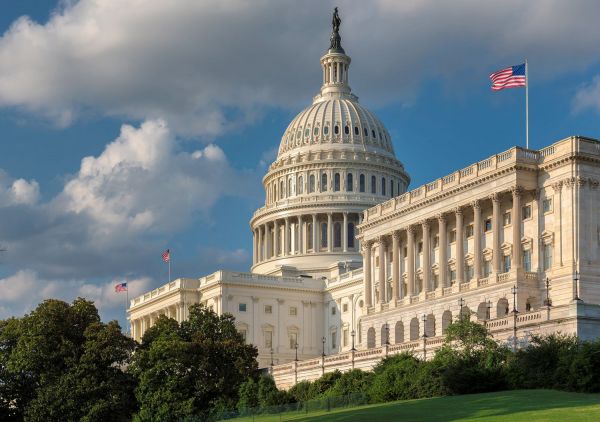SIOUX FALLS — At a roundtable that Rep. Dusty Johnson organized Monday to discuss “the impact of the Chinese Communist Party,” some South Dakota business and agricultural leaders told him to protect business ties with Chinese partners.
Johnson, R-South Dakota, is a member of the House Select Committee on the Chinese Communist Party. He organized the roundtable to learn about the impact that the Chinese government has on the state. The roundtable at the Greater Sioux Falls Chamber of Commerce included business leaders, agricultural leaders and academics.
Some participants told Johnson they value their relationships with Chinese partners and expressed concern about actions that could hurt their businesses and institutions.
“China is a huge buyer of dairy products,” said Jason Mischel, of Valley Queen Cheese Factory in Milbank. “Without access to that market, it would have a big impact on American dairy producers.”
The roundtable was the latest in a string of events, media appearances, speeches and social media postings by Johnson focusing on threats from China’s communist government.
“We have hoped for 30 years that economic engagement would make China freer,” Johnson said Monday. “What we are doing is not working.”
“Our supply chain is enormous coming out of China,” said Judd Guthmiller, international vice president at Daktronics, a Brookings-based scoreboard maker that relies on Chinese manufacturing.
Johnson sees China growing more authoritarian as it shifts even further toward one-man rule and leverages advanced technologies to control and sometimes abuse its people, steal intellectual property and spy on other nations. Johnson has said the U.S. should “strategically decouple” from China by moving vital supply chains for items such as pharmaceuticals and computer chips out of the country, while still sending agricultural commodities to China and engaging in other trade.
Evert Van der Sluis, professor of economics at South Dakota State University, said political leaders should focus on strengthening relationships with allies and investing in research and education efforts that ensure American supremacy, rather than economic decoupling.
“As we move towards a system of fragmentation with a China-based world and U.S.-based world, we have to look at costs,” Van der Sluis said. “If we want to remove ourselves from China, we have to acknowledge that prices will go up, and increase inflation even more.”
Agriculture’s biggest customer
U.S. agricultural exports to China in fiscal year 2022 reached $36.4 billion, surpassing the previous year’s record and making China the U.S.’s largest agricultural export market for the second consecutive year.
Those record numbers came after Chinese retaliatory tariffs in 2019, during the administration of President Donald Trump, resulted in the lowest export values in a decade.
“For the average South Dakota farmer, $50,000 was the average loss,” said Jerry Schmitz, executive director of the South Dakota Soybean Association, referring to 2019.

China is also the world’s largest consumer of feed grains, like corn, sorghum and alfalfa hay. Additionally, China’s beef consumption and import demand have grown over the past decade, with total imports reaching $17 billion in 2022.
“They are the consumer,” Schmitz said. “And if we say we’re not going to sell to China anymore, or only a third as much, then another country is going to come in, buy our soybeans, transfer them to China, and we lose.”
Sino-American decoupling
President Joe Biden is already imposing new actions to counter China; specifically, banning the export of advanced technologies that might help China’s military build world-dominating weapons or artificial intelligence systems. And Biden signed the CHIPS Act, which aims to move some vital semiconductor manufacturing from China back to the United States.
The export ban is having an impact – a woman was recently caught smuggling computer chips to China in a fake baby bump. The policies have reverberated throughout supply chains, leaving some Chinese firms struggling to finalize business plans, fulfill orders and build production lines.
And then there’s TikTok, a Chinese-owned social media app that claims 150 million American users. Many Democratic and Republican politicians believe that user data is at risk. There are multiple ideas about how to ban TikTok at the national level, and several states have already taken action. South Dakota Gov. Kristi Noem has banned TikTok on state government devices.













